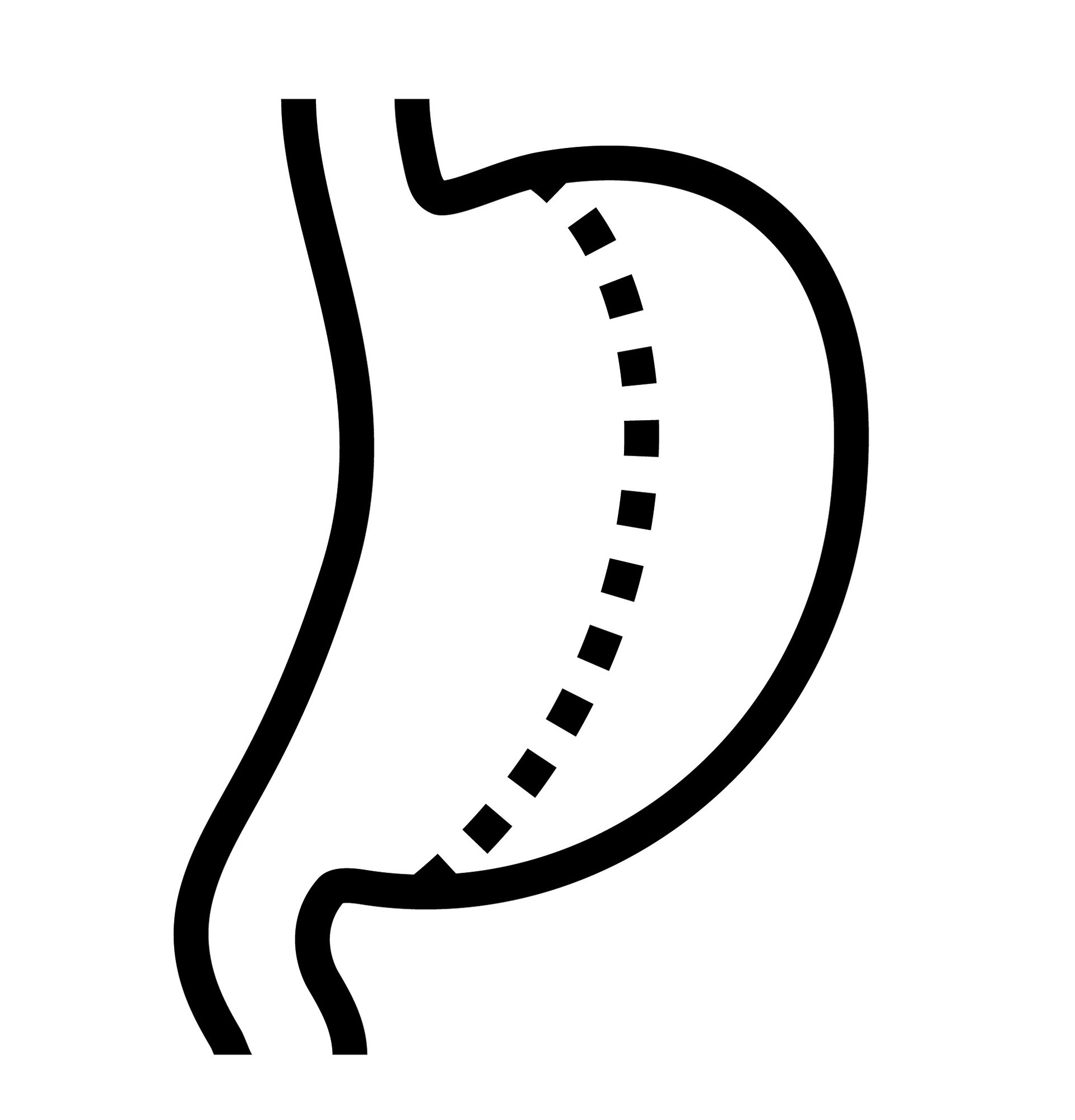Surgeries/ procedures we offer

Gastric balloon
A gastric balloon is a medical device used to aid weight loss in individuals who are obese or severely overweight. It's a temporary, non-surgical procedure where a deflated silicone balloon is inserted into the stomach through the mouth and then filled with saline solution or air to occupy space in the stomach. This makes the person feel fuller faster, thus reducing their food intake and promoting weight loss.

Gastric sleeve
Sleeve gastrectomy is a surgical weight-loss procedure where a large portion of the stomach (75%) is removed, leaving behind a smaller sleeve-shaped stomach. This reduces the stomach's capacity, leading to earlier feelings of fullness and a decrease in food intake. The procedure is often performed laparoscopically or robotically, which involves making several small incisions in the abdomen to perform the surgery.

Gastric bypass (Mini bypass/ Roux-en Y bypass)
Gastric bypass surgery, also known as Roux-en-Y gastric bypass, is a weight-loss surgery that involves creating a small pouch from the stomach and connecting it directly to the small intestine. This procedure reduces the size of the stomach and reroutes a portion of the digestive tract, leading to changes in how the body absorbs calories and nutrients.

SADI-S (single anastomosis duodeno-ileal bypass)
SADI stands for Single Anastomosis Duodeno-Ileal Bypass with Sleeve Gastrectomy. It's a type of weight-loss surgery where the surgeon first performs a sleeve gastrectomy before connecting the first part of the gut i.e. duodenum (the first part of the small intestine) to the ileum (the last part of the small intestine). This bypasses a reasonable portion of the small intestine, assisting in weight loss through reducing the absorption of calories and nutrients.
Revisional bariatric surgery
Revisional bariatric surgery refers to a surgical procedure performed to modify or correct a previous weight-loss surgery that has not achieved the desired results or has led to complications.
There are several reasons why someone might undergo revisional bariatric surgery:
-
Inadequate weight loss
-
Complications from the initial bariatric surgery requiring corrective surgery
-
Inadequate resolution of obesity-related issues despite previous surgery
Contact us today
-
Suite 18, 5/1 South St Kogarah NSW 2217
-
info@sgos.com.au
-
(02) 9587 8813
-May-05-2024-08-54-51-8494-AM.jpg?width=1308&height=306&name=St.George%20Logo-06%20(1)-May-05-2024-08-54-51-8494-AM.jpg)